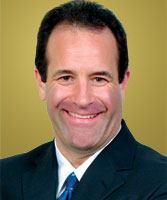 By Jim Peduto |
The U.S. Congress recently approved an increase in the federal minimum wage to $7.25. This potential $2.10 increase (41 percent), which would likely occur over a two-year period, will affect some BSCs more than others.
Even if a firm pays above the minimum wage, as many building service contractors do, the increase still needs to be managed because it can erode the premium that many firms pay above the minimum.
At the American Institute for Cleaning Sciences, we recently measured the impact that wage rates have on a client’s operation. In 2003, the average worker was paid $1.35 more than the minimum wage. In 2006, workers were being paid only $.25 more than the minimum. Next, we compared the pay to the reported turnover rate.
There was a very close correlation between turnover and the gap between pay rates and the minimum wage. While a variety of factors influence turnover rates, it is clear that the higher BSCs are above the minimum wage, the lower their turnover will be. Conversely, turnover rapidly rises as the pay rate approaches the minimum.
The challenge for BSCs is to balance turnover rates and the financial impact of the rates of higher wages. BSCs have to decide whether they can afford the cost of higher wages or absorb the cost of increased turnover and decreased service. There are three questions that can help BSCs decide how to handle wage increases:
- Do my margins allow me to absorb the cost of a minimum wage increase? This means the wage increase would come directly out of the BSC’s bottom line, without passing any of the cost on to customers.
- Can I convince my customers to accept the cost of a wage increase? While some customers can be educated, not all customers are going to accept service cost increases as a result of a higher minimum wage. There is always a risk that your customer will test the waters by soliciting competitive prices.
- If I choose to keep my wages at the minimum rate or let increases dramatically erode the premium that I pay, can I live with the turnover? Remember there is no free lunch. If you choose this option, you should be prepared to accept the additional costs of recruiting and training new employees — and decreased service levels.
Many BSCs already pay their workers wages that are significantly above the mandated minimum in order to stay competitive. However, if this minimum wage legislation passes, it will put BSCs currently paying competitive rates near minimum wage, if not slightly below. It’s a tough choice: pay the cost of a higher wage or pay the cost of a higher turnover. Perhaps the best option is a candid conversation with your customers.

 The Down and Dirty on Cleaning in Virus Season
The Down and Dirty on Cleaning in Virus Season How Surfactant Use is Expanding in Commercial Cleaning
How Surfactant Use is Expanding in Commercial Cleaning Operational Excellence Series 2025: Better Budgeting
Operational Excellence Series 2025: Better Budgeting
